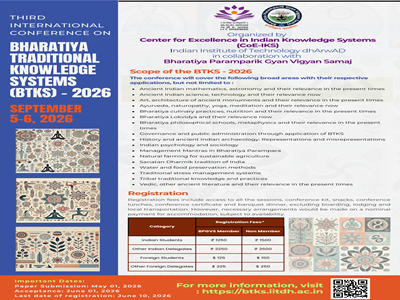Prof. Shripad T. Revankar
Abstract: Natural circulation has been employed in a number of power industrial systems including nuclear power plant safety systems. The prime motivation using natural circulation is its passive nature and high reliability. The cooling system in nuclear power plant safety systems are of large geometrically scale and testing is typically done with scaled test facilities. Two such unique natural circulation driven cooling system testing programs are presented in this talk. A brief overview of natural circulation cooling is presented first. Then two recent designs of reactor natural circulation cooling systems are discussed: (i) an isolation condenser system of an advanced boiling water reactor, (ii) natural circulation driven core catcher cooling system for pressurized water system. The method of scaling for test facilities design and experimental data are presented. Measurements of natural circulation flow rate, spatial local void fraction distribution, flow regime, and flow instabilities for various flow conditions are presented. Since heat transfer and critical heat flux are strongly dependent on the mass flow rate and development of two-phase flow the knowledge of two-phase flow characteristics is essential. The data are useful in assessing the cooling capability of natural circulation driven cooling systems.
Biography: Dr. Revankar is a Professor of Nuclear Engineering and Director of Multiphase and Fuel Cell Research Laboratory in the School of Nuclear Engineering at Purdue University, West Lafayette, Indiana. Currently he is Visiting Senior Professor at the IIT Jammu for all 2023. He received his BS, MS and PhD. all in Physics from Karnataka University, India and M.Eng.in Nuclear Engineering from McMaster University, Canada. He has worked as a post-doctoral researcher at Lawrence Berkeley Laboratory and at the Nuclear Engineering Department, University of California, Berkeley from 1984 to 1987. His research interests are in advanced reactor systems, reactor safety, reactor thermal-hydraulics, composite fuel for advanced nuclear reactors, instrumentation, multi-phase flow and heat transfer, microgravity multiphase flow, direct energy conversion, hybrid power systems, nuclear hydrogen generation, solar energy storage, packed bed reactor, renewable energy, and fuel cell technology. He has published over 400 peer reviewed technical articles in archival scientific journals and conference proceedings and author/coauthor of several books including: Storage and Hybridization of Nuclear Energy: Techno-economic Integration of Renewable and Nuclear Energy, Academic Press, November 2018, and Fuel Cells-Principles, Design, and Analysis, CRC Press, June 2014. He is Chief Editor of Frontier in Energy- Nuclear Energy He is a life member of ASME, ANS (American Nuclear Society) and AIChE (American Institute of Chemical Engineers, Indian Society for Heat and Mass Transfer, and Korean Nuclear Society. He was elected as Fellow of ASME in 2008, Fellow of ANS in 2015 and Fellow of AIChE in 2017. He was recently honored with two major international awards: Technical Achievement Award by American Nuclear Society and Long Service Award jointly by Nuclear Engineering Division of ASME, Japan Society of Mechanical Engineers and Chinese Nuclear Society, for his significant contributions to reactor thermal-hydraulics through experiments, and modeling of phenomena important in the analysis of nuclear reactor safety and applications, and sustained professional services.
Personal Website(s): https://engineering.purdue.edu/NE/people/ptProfile?resource_id=3691 https://engineering.purdue.edu/~shripad/
Google Scholar page: https://scholar.google.com/citations?user=RbX3mM0AAAAJ&hl=en
 myIIT
myIIT

